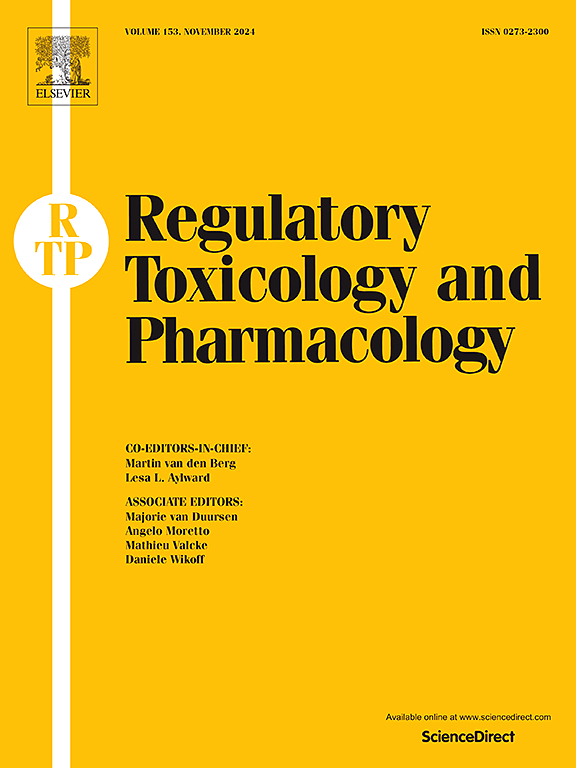植物药引起的毒性:肝损伤和植物药与药物的相互作用 毒理学会年会专题讨论会报告。
IF 3
4区 医学
Q1 MEDICINE, LEGAL
引用次数: 0
摘要
消费者广泛使用植物补充剂和草药产品,以获得各种所谓的健康益处,其受欢迎程度也在不断提高。其中一些天然产品可能会对肝功能产生不良影响和/或与处方药和非处方药(OTC)发生相互作用。确保这些唾手可得的产品的安全性是公众健康的一个关键问题;然而,并非所有监管机构都要求进行上市前安全审查和/或测试。为了解决和讨论这些问题以及与植物药安全性相关的其他新需求,2024 年 3 月 11 日在盐湖城(犹他州)举行的毒理学学会年会上召开了一次研讨会。研讨会讨论了植物药引起的肝脏毒性和植物药与药物相互作用的最新研究,包括筛选毒性的新方法、评估植物药安全性的挑战以及将人类不良事件与特定产品联系起来。演讲者与听众之间的发言和热烈的小组讨论强调了进一步研究和合作的必要性,以提高植物补充剂和草药产品的安全性,最终达到保护消费者健康的目的。虽然研讨会上介绍的许多现代工具的实用性还需要进一步研究,但不同专家的协同努力为有效预测和评估植物药引起的肝毒性和植物药与药物相互作用的可能性带来了希望。本文章由计算机程序翻译,如有差异,请以英文原文为准。
Botanical-induced toxicity: Liver injury and botanical-drug interactions. A report on a society of Toxicology Annual Meeting symposium
Botanical supplements and herbal products are widely used by consumers for various purported health benefits, and their popularity is increasing. Some of these natural products can have adverse effects on liver function and/or interact with prescription and over-the-counter (OTC) medications. Ensuring the safety of these readily available products is a crucial public health concern; however, not all regulatory authorities require premarket safety review and/or testing. To address and discuss these and other emerging needs related to botanical safety, a symposium was held at the Society of Toxicology Annual Meeting in Salt Lake City (UT) on March 11, 2024. The symposium addressed the latest research on botanical-induced liver toxicity and botanical-drug interactions, including new approach methods to screen for toxicity, challenges in assessing the safety of botanicals, and relating human adverse events to specific products. The presentations and robust panel discussion between the speakers and audience highlighted the need for further research and collaboration to improve the safety of botanical supplements and herbal products, with the ultimate goal of protecting consumer health. Although utility of many of the modern tools presented in the symposium requires further study, the synergistic efforts of diverse experts hold promise for effective prediction and evaluation of botanical-induced hepatotoxicity and botanical-drug interaction potential.
求助全文
通过发布文献求助,成功后即可免费获取论文全文。
去求助
来源期刊
CiteScore
6.70
自引率
8.80%
发文量
147
审稿时长
58 days
期刊介绍:
Regulatory Toxicology and Pharmacology publishes peer reviewed articles that involve the generation, evaluation, and interpretation of experimental animal and human data that are of direct importance and relevance for regulatory authorities with respect to toxicological and pharmacological regulations in society. All peer-reviewed articles that are published should be devoted to improve the protection of human health and environment. Reviews and discussions are welcomed that address legal and/or regulatory decisions with respect to risk assessment and management of toxicological and pharmacological compounds on a scientific basis. It addresses an international readership of scientists, risk assessors and managers, and other professionals active in the field of human and environmental health.
Types of peer-reviewed articles published:
-Original research articles of relevance for regulatory aspects covering aspects including, but not limited to:
1.Factors influencing human sensitivity
2.Exposure science related to risk assessment
3.Alternative toxicological test methods
4.Frameworks for evaluation and integration of data in regulatory evaluations
5.Harmonization across regulatory agencies
6.Read-across methods and evaluations
-Contemporary Reviews on policy related Research issues
-Letters to the Editor
-Guest Editorials (by Invitation)

 求助内容:
求助内容: 应助结果提醒方式:
应助结果提醒方式:


